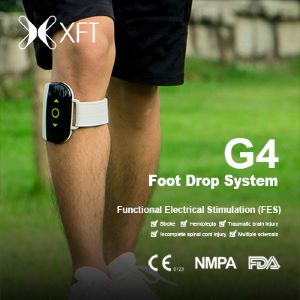Lindsey Wynne, PT, DPT, NCS
Research Physical Therapist
Baylor Scott and White Institute for Rehabilitation- Dallas
20OMB No. 0925-0001 and 0925-0002 (Rev. 10/2021 Approved Through 09/30/2024)
BIOGRAPHICAL SKETCH
Provide the following information for the Senior/key personnel and other significant contributors.
Follow this format for each person. DO NOT EXCEED FIVE PAGES.
NAME: Lindsey Wynne
eRA COMMONS USER NAME (credential, e.g., agency login):
POSITION TITLE: Research Physical Therapist, Baylor Scott & White Institute for Rehabilitation
EDUCATION/TRAINING (Begin with baccalaureate or other initial professional education, such as nursing, include postdoctoral training and residency training if applicable. Add/delete rows as necessary.)
INSTITUTION AND LOCATION DEGREE
(if applicable)
Start Date
MM/YYYY Completion Date
MM/YYYY
FIELD OF STUDY
Texas State University, San Marcos, TX BESS 08/2006 05/2010 Exercise and Sports Science with an emphasis in pre- physical therapy
The University of Texas Medical Branch, Galveston, TX DPT 08/2010 08/2013 Physical Therapy
A. Personal Statement
I am a board certified clinical specialist in Neurologic Physical Therapy. I have practiced as a clinician from 2013 to 2023 in inpatient rehabilitation, working with individuals with neurological diseases and disorders. For the majority of my career I have worked on the Spinal Cord Injury team at Baylor Scott and White Institute for Rehabilitation in Dallas, Texas. Additionally, I serve as a guest lecturer for Spinal Cord Injury courses and labs for the doctoral physical therapy programs at Texas Women’s University in Dallas, Texas, as well as the University of Texas Medical Branch in Galveston, Texas. Lastly, I also serve my time as the co-chair for the Support. Challenge. Inspire. SCI Support Group. I have recently transitioned from a full-time practicing clinician to a Research Physical Therapist under the direct mentorship of Dr. Chad Swank. In this position, I currently participate in two studies [NIDILRR 90IFRE0043; Swank PI and DoD W81XWH-20-SCIRP-CTA; Swank PI] examining the use of robotic exoskeletons with people with SCI and two studies exploring impact of vagus nerve stimulation on upper limb function in people with SCI (N66001-17-2-4011) and stroke (UH3NS109497). For these studies I will bring clinical experience for the assessment and treatment of people with spinal cord injury with a robotic exoskeleton intervention. Overall, I am well-positioned to act as Research Physical Therapist on the grant based on my Ekso certification training and clinical expertise.
B. Positions, Scientific Appointments and Honors
Positions and Employment
2021 – present Research Physical Therapist, Baylor Scott & White Institute for Rehabilitation, Research Institute
2018 – 2023 Advanced Clinical Specialist Physical Therapist, Baylor Scott & White Institute for Rehabilitation
2016-2018 Level II Physical Therapist, Texas Rehabilitation Hospital of Arlington
2013-2016 Level I Physical Therapist, Warm Springs Rehabilitation Hospital of San Antonio
Clinical Licenses and Certifications
2013 – present Physical Therapy, Texas License No. 1237411
2022 – present Board-Certified Clinical Specialist in Neurologic Physical Therapy
2014 – present Ekso Bionics Level 2 Certified
2014 – present Rewalk Exoskeleton Basic User Certified
C. Contributions to Science
Despite an increasing prevalence in overground exoskeleton gait training use during inpatient rehabilitation after neurologic injury, no evidence-based clinical practice guidelines exist. My publications in this area seek to utilize therapist perspectives to provide clinical reasoning principles for overground exoskeleton training.
1. Arnold, D, Shih, H-T, Gillespie, J, Wynne, L, & Swank, C. (Sept 2023) Clinical reasoning and user experience of exoskeleton-assisted therapy in inpatient rehabilitation. Academy of Spinal Cord Injury Professionals. San Diego, CA. (submitted as symposium)
Promoting gait adaptability is critical for improving gait following spinal cord injury (SCI). Recent advances in exoskeleton technology allow for dynamic stepping tasks. My publications in this area seek to further knowledge on the functional mobility and gait changes associated with increasing the dynamic nature of overground exoskeleton gait training sessions.
2. Wynne, L, Arnold, D, Gillespie, J, Trammell, M, & Swank, C. (September 2022) Dynamic variable exoskeleton gait training following spinal cord injury in inpatient rehabilitation: A case series. Academy of Spinal Cord Injury Professionals. Kansas City, MO.: accepted for poster presentation
Multiple barriers to participation in physical activity exist for persons with spinal cord injury/ disease; this can contribute to a further loss of function. Recent literature highlights the importance of cardiovascular intensity with interventions to support motor recovery. My publications in this area seek to further knowledge on the results associated with increasing activity and intensity of interventions in individuals with spinal cord injury.
3. Brown, K, Trammell, M, Moore, A, Weeks, A, Wynne, L, Gilliland, T, Reynolds, M, McShan, E, Driver, S, Sikka, S, Hamilton, R, & Swank, C. (September 2022) Metabolic testing for exercise intensity during overground robotic exoskeleton gait training in two persons with complete tetraplegia. Academy of Spinal Cord Injury Professionals. Kansas City, MO.: accepted for poster presentation
4. Brown, K, Elliot, C, McCorkle, M, Wynne, L, Gillespie, J, Arnold, D, Sikka, S, Driver, S, & Swank, C. (May 2023) Intensity Of Overground Robotic Exoskeleton Gait Training in Patients with Spinal Cord Injury During Inpatient Rehabilitation. American College of Sports Medicine Annual Meeting, World Congress on Exercise is Medicine. Denver, CO (submitted as symposium)
5. Arnold, D., Wynne, L., Fowler, H., Clark, K., DiPasquale, J., & Swank, C. (2020). Intensity of therapeutic interventions in inpatient rehabilitation for patients with spinal cord injury - A pilot study. (ASCIP): accepted for platform presentation
Functional electrical stimulation lower cycle ergometry (FES-LCE) use with individuals with spinal cord injury (SCI) is reported to improve cardiovascular conditioning, neuromuscular function, and overall health outcomes. My publications in this area seek to develop healthy lifestyle interventions for individuals living with neurologic injury.
6. Christina Fazio, PT, ATP; Chad Swank, PT, PHD; Lindsey Wynne, PT, DPT; Hayden Fowler, PT, DPT; Kelly Clark, PT, DPT; Librada Callendar, MPH; Christa Ochoa, MPH, CCRC; Jaclyn Miller, PT, DPT; Seema Sikka, MD (September 2021) Characterization of Functional Electrical Stimulation Leg Cycle Ergometry (FES-LCE) during Inpatient Rehabilitation. Academy of Spinal Cord Injury Professionals. Reno, NV: accepted for platform presentation
Poster(s):
-
Tuesday, October 31, 20233:35 PM - 3:41 PM

.jpg)
